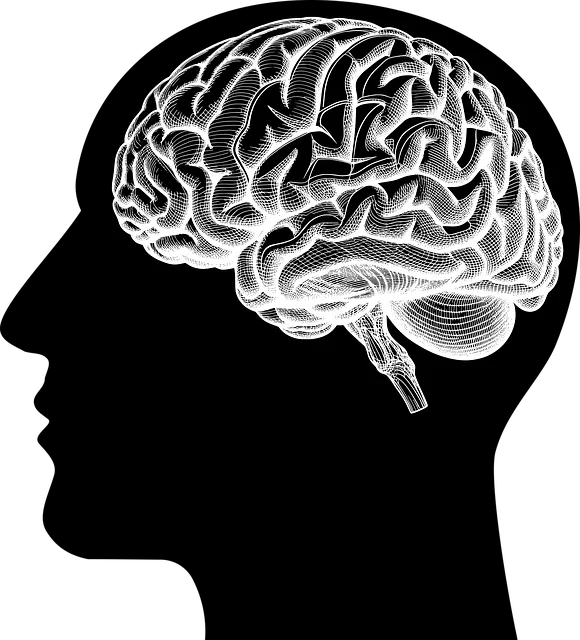The Aurora Kaiser Permanente Mental Health Access Center leads in cultural competency training, addressing diverse patient needs through tailored programs and immersive scenarios. Their focus on effective communication, empathy, and resilience building closes healthcare disparities by empowering providers to deliver sensitive, personalized care. This holistic approach improves patient outcomes, fosters inclusive environments, and enhances access to mental health services for marginalized communities.
Healthcare provider cultural competency training is no longer a luxury, but an essential component of modern medical practice. As diverse patient populations become the norm, understanding and respecting cultural differences can significantly improve healthcare outcomes. This article explores strategies for enhancing cultural competency, using the Aurora Kaiser Permanente Mental Health Access Center as a model for successful programs. We’ll delve into key components, benefits, and implementation tips for healthcare organizations aiming to deliver equitable care.
- Understanding Cultural Competency in Healthcare: A Necessity for Modern Practice
- The Aurora Kaiser Permanente Mental Health Access Center: A Model for Training
- Key Components of Effective Cultural Competency Programs
- Benefits and Impact on Patient Care and Outcomes
- Implementation Strategies for Healthcare Organizations
Understanding Cultural Competency in Healthcare: A Necessity for Modern Practice

In today’s diverse healthcare landscape, cultural competency is no longer a nice-to-have, but an absolute necessity. Organizations like Aurora Kaiser Permanente Mental Health Access Center recognize that providing quality care requires understanding and respecting patients’ unique cultural backgrounds, beliefs, and values. This approach, essential for modern practice, ensures that everyone receives personalized treatment, fostering better health outcomes and stronger patient-provider relationships.
Cultural competency involves effective communication strategies, empathy, and resilience building. By integrating these skills, healthcare providers can navigate complex cultural terrains, address anxiety relief for patients from various backgrounds, and offer services that resonate with diverse communities. At the Aurora Kaiser Permanente Mental Health Access Center, training programs focus on these aspects to equip professionals with the tools needed to serve a broad spectrum of individuals, ultimately enhancing care delivery across the board.
The Aurora Kaiser Permanente Mental Health Access Center: A Model for Training

The Aurora Kaiser Permanente Mental Health Access Center stands as a pioneering model for healthcare provider cultural competency training. This innovative center has been at the forefront of enhancing mental wellness services, particularly by addressing the unique needs of diverse communities. Through comprehensive programs and resources, it offers not only Trauma Support Services but also Crisis Intervention Guidance tailored to various cultural contexts.
The access center’s approach focuses on empowering healthcare providers with the skills to offer empathetic and culturally sensitive care. By immersing trainees in diverse scenarios and providing ongoing support, they become better equipped to navigate complex interpersonal dynamics. This specialized training ensures that patients from all backgrounds receive individualized attention, fostering a safe space for open dialogue and promoting positive mental health outcomes.
Key Components of Effective Cultural Competency Programs

Effective cultural competency programs are designed to bridge healthcare gaps by fostering understanding and respect for diverse cultures and backgrounds. At the Aurora Kaiser Permanente Mental Health Access Center, these initiatives go beyond mere awareness; they focus on key components that drive meaningful change. One such component is social skills training, which equips healthcare providers with the ability to communicate effectively across cultural divides, ensuring every patient receives personalized care.
Additionally, promoting emotional well-being through evidence-based techniques and teaching stress management strategies are integral parts of these programs. These approaches not only enhance the patient experience but also empower medical professionals to address mental health concerns sensitively and competently, reflecting the center’s commitment to holistic healthcare that respects and values every individual’s unique cultural identity.
Benefits and Impact on Patient Care and Outcomes

Cultural competency training equips healthcare providers with the tools to offer more personalized and effective care. By fostering self-awareness exercises that challenge implicit biases and preconceived notions, Aurora Kaiser Permanente’s Mental Health Access Center has seen significant improvements in patient interactions. This enhanced understanding leads to better risk assessments for mental health professionals, enabling them to tailor interventions precisely to individual needs. For instance, through the guidance of mental wellness journaling exercises, patients are empowered to express their unique experiences and challenges, fostering a deeper connection between caregiver and cared-for.
The impact on patient care and outcomes is profound. Such training promotes an inclusive environment where diverse perspectives are valued, leading to improved communication and increased access to mental health services, especially for marginalized communities. This holistic approach not only addresses the immediate needs of patients but also contributes to long-term mental wellness by cultivating a culture of empathy and understanding within healthcare delivery systems.
Implementation Strategies for Healthcare Organizations

Implementing cultural competency training within healthcare organizations is a multifaceted process that requires careful planning and execution. Aurora Kaiser Permanente Mental Health Access Center has pioneered innovative strategies to ensure comprehensive coverage, leveraging resources like their Community Outreach Programs to bridge cultural gaps. By integrating these programs into existing infrastructure, the center facilitates open dialogue between diverse patient groups and clinical staff, fostering an environment of understanding and respect.
One effective approach involves training sessions tailored to specific demographics, focusing on stress reduction methods that cater to different cultural backgrounds. This personalized approach not only enhances patient-provider relationships but also improves access to mental health services, particularly for communities historically underserved or wary of traditional healthcare systems. Additionally, the center promotes ongoing professional development through workshops and webinars, ensuring staff remain abreast of evolving best practices in cultural competency.
Cultural competency training, as exemplified by the innovative programs at the Aurora Kaiser Permanente Mental Health Access Center, is a game-changer in modern healthcare. By equipping providers with the skills to navigate diverse patient populations, organizations can improve patient care and outcomes. Implementing comprehensive cultural competency programs, backed by evidence-based practices, fosters an inclusive environment that enhances trust and satisfaction among patients from all backgrounds. In light of these benefits, healthcare organizations should prioritize such training to ensure they deliver equitable and effective care in our diverse society.






